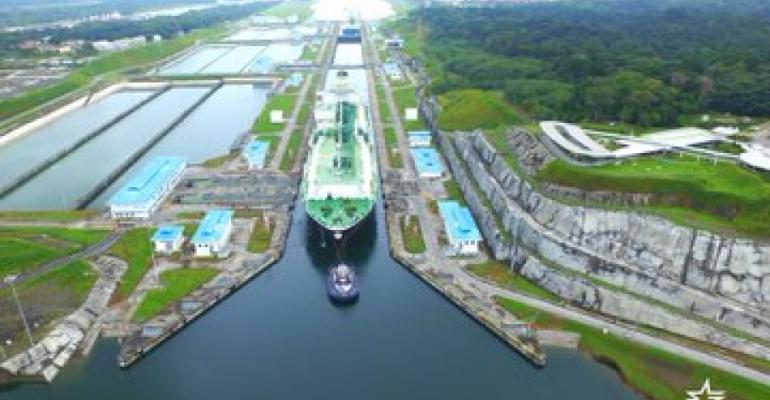The new tolls were approved the day before the new Panama Canal administrator Ricaurte Vasquez was sworn-in.
The proposed tolls modifications were announced on 14 June 2019. This initiated a formal 30-day consultation period which concluded by a public hearing held on 24 July 2019 to ensure all interested parties could provide feedback for consideration.
The new toll structure enhances the Canal’s ability to provide competitive service and reliability for the global shipping and maritime community, the Panama Canal Authority (ACP) said Friday. The approved modifications include the tolls charged to neo-panamax dry bulk vessels carrying iron ore, neo-panamax dry bulk vessels transiting in ballast, the vehicle carrier/ro-ro segment, and for the liquid bulk segment (including oil and product tankers, chemical tankers, LPG and LNG vessels).
The modifications also include adjustments made in response to topics discussed during meetings with customers and industry representatives held prior to the process, as well as feedback received during the formal consultation period.
Such adjustments include the exclusion of the proposed tolls modification for the cruise ship segment, which remain the same, for the moment. Additionally, the implementation date for tolls applicable to certain segments will be postponed until the months of April and May 2020.
Specifically, the final toll structure modifications include the following:
• Dry bulk segment: Matched tolls charged to neo-panamax vessels carrying iron ore with the tolls assessed for grains and “other dry bulk” cargoes. Includes a tariff increase neo-panamax dry bulkers transiting in ballast.
• Containership segment: Two new categories incorporated to the Loyalty Programme with the objective of giving incentives to increased cargo volumes and additional services through the waterway. The Loyalty Programme added new levels with reduced rates in the capacity charge for shipping lines deploying between 2m to 3m teu, and additional reductions for lines deploying an incremental over 3m teu. Ship owners would receive a $3 per teu reduction on volumes of between 1.5m and 2m teu. This rises to $3.25 for between 2m and 3m teu. Above this, the cut is $5 per teu.
• Containers on deck: New rate for vessels carrying containers on deck, which do not belong to the container shipping segment, allowing for differentiated charges for containers that are empty, dry or refrigerated.
• Vehicle carrier and ro-ro segment: Modified the tolls charged and revised the vessel capacity ranges in order to clearly differentiate the current fleet. Based on the recommendations received, the tolls presented in the original proposal were adjusted for neo-panamax vessels.
• Tankers, chemical tankers, LPG and LNG vessels: Toll structures remain unchanged, but tolls adjustments were approved to more closely align with the value of the route.
• Small vessels and local tourism: Revised upwards to consider the resources used in the transit.
The Implementation date, originally scheduled for January 2020 has been spread and will begin on 1 January 2020 for:
*Modifications for Minimum tolls applicable to small vessels.
*Improvements to the Loyalty Programme for Container vessels.
*Considerations to charge based on timber summer dwt or summer loaded dwt, whichever is higher, only for dry bulk vessels carrying timber deck cargo;
On 1 April 2020 for:
*Modifications for the liquid bulk segment (including oil and product tankers, chemical tankers, LPG and LNG vessels).
*Modifications for neo-panamax dry bulk vessels carrying iron ore and neo-panamax dry bulk vessels transiting in ballast.
*Modifications for the vehicle carrier segment.
*Differentiation of the teu tariff applicable to non-container vessels carrying containers on deck.
Copyright © 2024. All rights reserved. Seatrade, a trading name of Informa Markets (UK) Limited. Add Seatrade Maritime News to your Google News feed.


